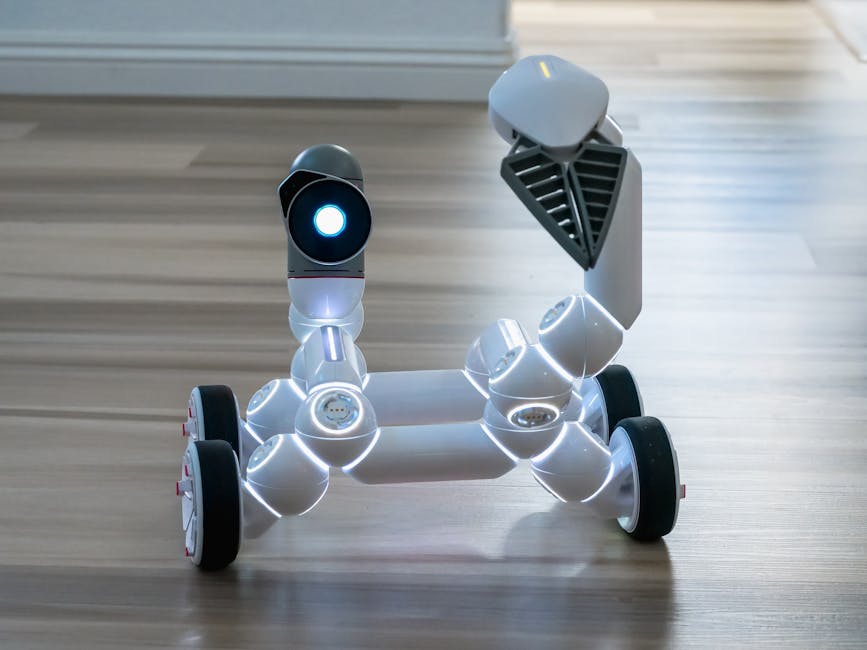No products in the cart.
Designing Tomorrow: Careers in AI-Powered Smart Homes
As smart homes evolve, so do the careers behind them. Explore the transformative roles in AI and IoT integration that are shaping our future.
In the not-so-distant future, homes will talk to us, anticipate our needs, and even manage our schedules. Sounds like science fiction? Welcome to the world of AI-powered smart homes. As this technology rapidly evolves, so too do the career paths that fuel its growth. From engineers to AI designers, the opportunities are as exciting as they are varied.
Imagine walking into your home and having the lights adjust to your preferred brightness, the thermostat set to your ideal temperature, and your favorite playlist already playing. This is no longer a distant dream; it’s becoming a reality, thanks to the integration of artificial intelligence (AI) and the Internet of Things (IoT).

The rise of smart homes is not just a technological trend; it’s a seismic shift in how we interact with our living spaces. A recent study by the International Data Corporation (IDC) predicts that the global smart home market will reach $174 billion by 2025, growing at a staggering rate as more consumers embrace the convenience and efficiency that smart technology offers[1]. But who is behind this revolution? What skills are necessary to thrive in this burgeoning field?
 Real Estate
Real EstateGlobal Inflation’s Impact on Young Consumers
Explore the impact of global inflation on young adults' spending habits, revealing shifts in budgets and lifestyle adjustments.
At the heart of smart home technology is a complex interplay of hardware and software. Engineers play a pivotal role in designing and building the physical devices—everything from smart speakers to security cameras. These professionals must possess a robust understanding of electronics, coding, and systems integration. However, as the demand for seamless user experiences grows, so too does the need for AI designers. These creative minds craft the algorithms that enable devices to learn user preferences and adapt to changing environments.
These professionals must possess a robust understanding of electronics, coding, and systems integration.
But the landscape is not limited to technical roles alone. There is also a burgeoning need for project managers who can oversee the development cycle, ensuring that everything runs smoothly from conception to launch. Marketing specialists are crucial for educating consumers about these innovations, while customer service experts help users navigate the complexities of their new smart devices.
For those aspiring to enter this dynamic field, education is key. Universities around the globe are adapting their curricula to meet the needs of this evolving market. Programs in computer science, engineering, and even design are incorporating courses on AI, machine learning, and IoT. Online platforms are also stepping up, offering courses tailored to specific skills required in smart home technology. Companies like Coursera and Udacity provide valuable resources for those looking to upskill or pivot their careers towards this exciting frontier.
Moreover, the rise of remote work has opened doors for individuals globally, allowing for a diverse pool of talent to contribute to projects without geographical constraints. This trend is particularly beneficial for women entrepreneurs and professionals, who have historically faced barriers in tech fields. With access to online education and flexible working environments, women are stepping into roles that were previously dominated by men, bringing fresh perspectives and innovation to the table.
 Data Science
Data ScienceThe Role of Open Data in Accelerating Scientific Progress
Open data is revolutionizing scientific research by enhancing transparency and collaboration, leading to faster innovations and replication in studies.
Read More →However, as with any burgeoning industry, challenges abound. As technology advances, ethical considerations surrounding AI and privacy are becoming increasingly prominent. Professionals in this field must navigate these waters carefully, ensuring that user data is protected and that innovations enhance, rather than compromise, quality of life.
Looking ahead, the future of smart homes appears bright. As AI continues to evolve, the potential for new applications and integrations is limitless. Imagine a home that not only adjusts to your preferences but also predicts your needs based on your daily habits. The implications for energy conservation, security, and even mental well-being are profound, creating further opportunities for professionals in this space.
Companies like Coursera and Udacity provide valuable resources for those looking to upskill or pivot their careers towards this exciting frontier.
In conclusion, the careers sprouting from the soil of smart home technology are as diverse as they are promising. From engineers to designers, project managers to marketers, the future is ripe with opportunity for those willing to embrace it. As we step into this new era, one thing is clear: the homes of tomorrow will not only be smarter but also shaped by a new generation of innovators.











